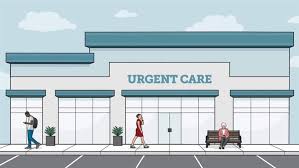In times of medical urgency, knowing where to turn for prompt and efficient care is paramount. This is where urgent care centers step in, providing accessible and immediate medical attention for a wide range of non-life-threatening conditions. Understanding the services offered by these facilities and when to utilize them can make a significant difference in managing health concerns effectively. Let’s delve into the world of urgent care centers and explore their vital role in healthcare delivery.

What is an Urgent Care Centers?
Urgent care centers are medical facilities that offer walk-in care for patients requiring immediate attention for non-life-threatening medical issues. These centers bridge the gap between primary care physicians and emergency rooms, providing a convenient option for individuals with acute medical needs outside regular office hours. Equipped with diagnostic capabilities and medical professionals, urgent care centers deliver timely and comprehensive care for a variety of conditions.
Services Offered:
One of the key features of urgent care centers is their versatility in addressing a wide range of medical concerns. From minor injuries to common illnesses, these facilities offer diagnostic, treatment, and preventive services, including:
Treatment for minor injuries such as cuts, sprains, and minor fractures.
Management of common illnesses like colds, flu, infections, and allergies.
Diagnostic services including X-rays, lab tests, and diagnostic imaging.
Immunizations and vaccinations.
Occupational health services such as pre-employment screenings and workplace injury care.
Prescription services for short-term medications.
When to Visit an Urgent Care Center:
Understanding when to seek care at an urgent care center versus other healthcare facilities is essential for optimizing medical outcomes.The best places to treat non-life-threatening illnesses that need immediate care but don’t need to be seen in the emergency room are urgent care centers. Some common scenarios where urgent care may be appropriate include:
Minor injuries like cuts, bruises, and minor burns.
Common illnesses such as colds, sore throat, and flu-like symptoms.
Mild to moderate allergic reactions.
Minor fractures and sprains.
Ear or sinus infections.
Urinary tract infections.
Sports injuries.
Minor skin conditions like rashes and insect bites.
Advantages of Urgent Care Centers:
Urgent care centers offer several advantages over traditional healthcare settings, including:
Accessibility:
Urgent care centers typically have extended hours, including evenings and weekends, providing convenient access to care when primary care physicians’ offices are closed.
Prompt Care: Patients are usually seen on a walk-in basis, with minimal wait times compared to emergency rooms.
Cost-Effective:
Urgent care visits are often more affordable than emergency room visits, making them a cost-effective option for non-life-threatening conditions.
Comprehensive Services: Urgent care centers offer a wide range of services, including diagnostics and treatments, under one roof, eliminating the need for multiple appointments or referrals.
Services:
Urgent care centers are medical facilities that offer walk-in care for patients requiring immediate attention for non-life-threatening medical issues. These centers bridge the gap between primary care physicians and emergency rooms, providing a convenient option for individuals with acute medical needs outside regular office hours. Equipped with diagnostic capabilities and medical professionals, urgent care centers deliver timely and comprehensive care for a variety of conditions.These centers bridge the gap between primary care physicians and emergency rooms, providing a convenient option for individuals with acute medical needs outside regular office hours. Equipped with diagnostic capabilities and medical professionals, urgent care centers deliver timely and comprehensive care for a variety of conditions.
In Conclusion:
Urgent care centers play a vital role in healthcare delivery, offering accessible and immediate care for non-life-threatening medical concerns. By providing timely and comprehensive services, these facilities help alleviate the burden on emergency rooms and provide patients with an alternative option for managing acute health issues. Understanding when to visit an urgent care center and the services they offer can empower individuals to make informed decisions about their healthcare needs, ensuring prompt attention and optimal medical outcomes.

